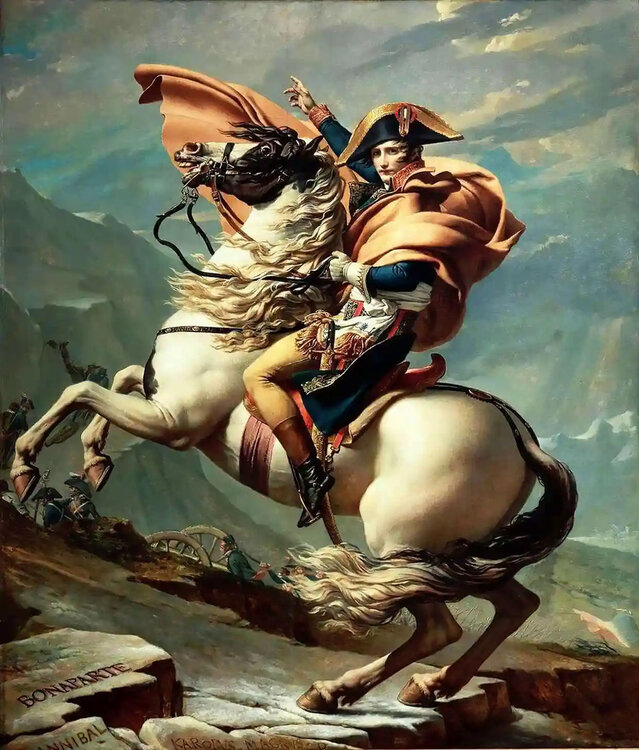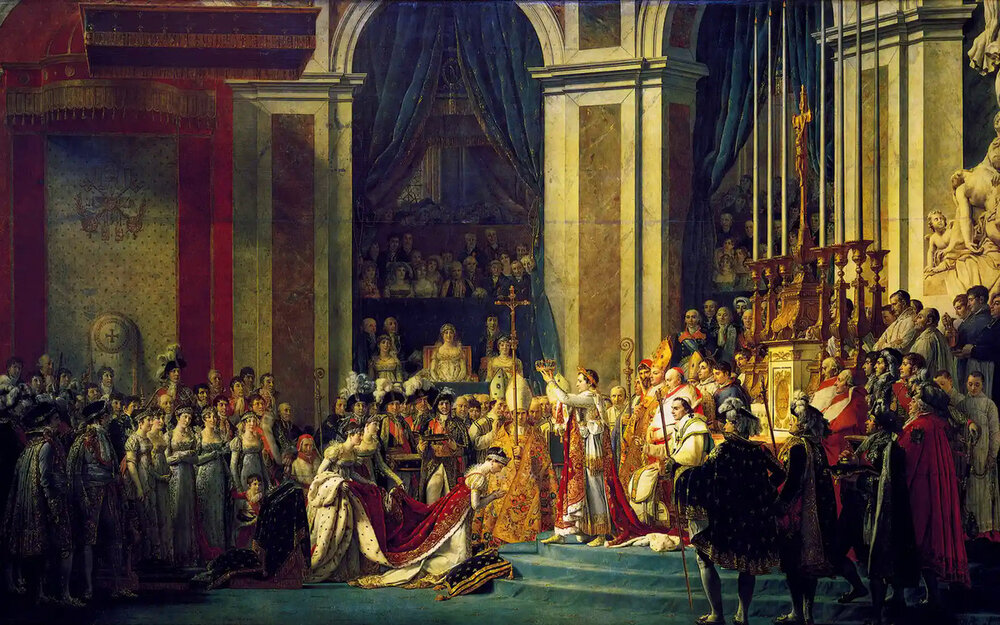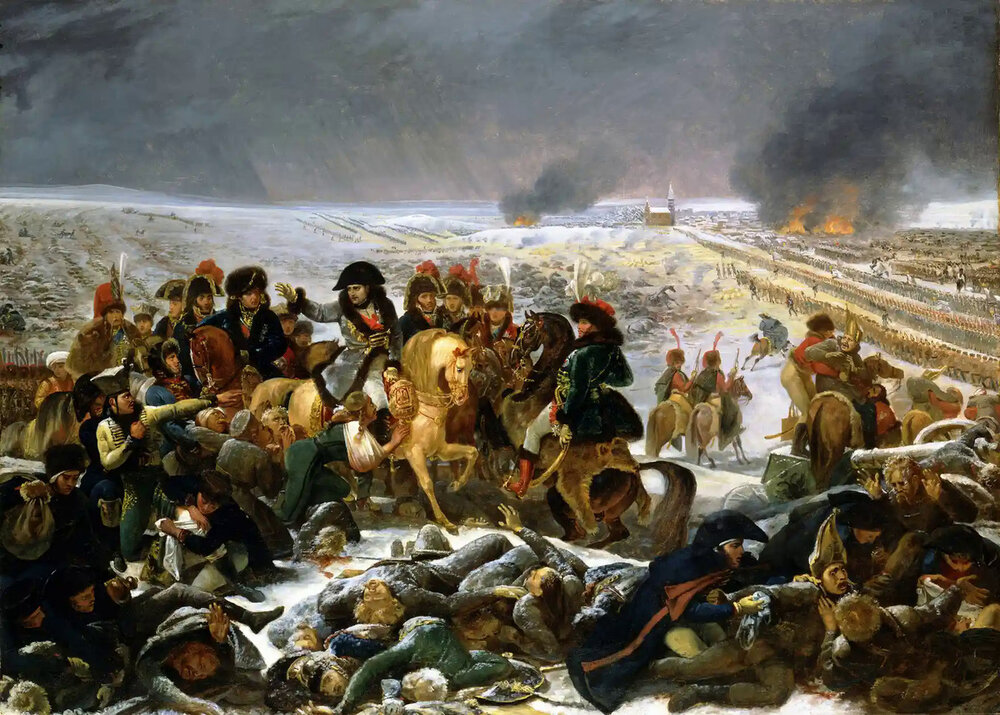
PeterRS
Members-
Posts
4,999 -
Joined
-
Last visited
-
Days Won
330
Content Type
Profiles
Forums
Events
Everything posted by PeterRS
-
Doing nothing? Israel has done vastly more than nothing! You call the destruction of much of north Gaza, the murder of more than 10,000 Palestinians, the majority being women and young children, many babies, and the displacement of more than a million individuals "doing nothing"? Fine, call it what you like. For most of the world it is a response to Hamas' ghastly murders and kidnappings devoid of any sort of proportion. The right wing government of Netanyahu has for years been determined to brush over the "two state solution" in favour of expanding Israeli settlements and treating Palestinians as animals. And never forget this same Netanyahu is the one who proposed encouraging Hamas in Gaza and whose security forces totally failed to see the Hamas atacks coming - despite several warnings! You present no sources. Mine include - https://ecre.org/eu-external-partners-eu-divided-over-gaza-as-humanitarian-crisis-displacement-and-death-toll-increases-leaked-document-reveals-israeli-plan-for-permanent-displacement-of-the-strip-population-in-the/#:~:text=One%20million%20people%2C%20half%20the,bombardment%2C%20with%20significant%20numbers%20killed. https://apnews.com/article/israel-hamas-war-death-toll-numbers-injured-5c9dc40bec95a8408c83f3c2fb759da0 https://apnews.com/article/israel-hamas-war-death-toll-numbers-injured-5c9dc40bec95a8408c83f3c2fb759da0
-
Outside the world of pop, I cannot think of any artist/musician whose recordings continue to sell better year after year even 50 years after his/her death. I guess Frank SInatra must be up there somewhere but then he's only been gone for 25 years or so. In the classical sphere, Pavarotti will surely be up there for many years to come, but again it's only been 16 years since his death. The one who proves us wrong died 50 years ago this coming Saturday. Since then the recordings of soprano Maria Callas continue to outsell those of any other EMI artist before and since. Extraordinary, the more so when you realise she was only 53 when she died and had spent many of her earlier years away from singing. Yet there is something about that voice that results in her continuing appeal. That she was a consummate stage actor in addition to being one of the most in-demand opera singers of her time hardly matters today since there are now very few alive who actually saw her in her prime. Perhaps part of the reason is that through her voice she became the characters she was portraying. In essence she was The Diva. We tend to think of her as Greek; yet she was actually born in New York to Greek immigrant parents. Her mother lavished little attention on her as she had been desperate for a son. Then she realised her daughter was a decent singer and around the age of five pushed her to lessons despite Maria having little interest. With a deteriorating marriage, Maria's mother took her to Greece aged 13. According to both her later husband and her soon-to-become good friend, the famed mezzo-soprano Giulietta Simionato, during WWII her mother forced her to go out with various men. Both denied she had ever become a prostitute but the experience haunted her throughout much of her life. Soon Callas ceased all communication with her mother. In Athens she was not permitted to enter the Music Conservatoire. So she took private lessons. Eventually she moved to Italy where one of the great conductors of the day took her under his wing. But she started her main career singing a variety of roles that no soprano would even consider today. The great, heavy dramatic roles of Wagner's Brunnhilde and isolde were interspersed with the high, far lighter soprano and often coloratura roles in La Traviata and Lucia di Lammermoor. Soon the doors to the great opera houses of the world were opened for her, mostly in her new bel canto repertoire. Desperate for love in what had till then been very much a loveless life, in 1949 she married the industrialist Giovanni Meneghini. He was soon managing much of her career, but she remained unhappy. She had always been overweight and around 1953 decided that for the roles she was then singing she needed to be much slimmer. So she lost 37 kgs. Some thought this dramatic weight loss must have affected her voice for it is from the diaphragm that the voice is produced and must be supported. But there is no doubt that the 'new' Callas looked one of the most beautiful in the opera firmament. Wherever she went she was front-page news, not only for the magnificence of her performances but also not a few scandals. It was in 1957 that an event occurred which totally changed her life and career forever. Although still married to Meneghini, at a society party in New York she was introduced to the Greek Shipping magnate Aristotle Onassis, one of the world's richest men. Although he was 19 years older, this was to lead to an intense affair that brought even more headline attention. That the two were in love is certain. But whether Onassis loved Callas as much as she loved him is still a matter of debate. It certainly became the most talked about affair of the decade, the more so as both still remained married. In 1966 Maria renounced her US citizenship to facilitate the end of her relationship with Meneghini, certain that she would soon be marrying Onassis, even though aware that Onassis was compulsively unfaithful. But three bullets in Dallas were to put an end to those dreams, even though both were soon single again. After the assassination of JFK, Onassis discovered an even more valuable prize. Although arguably a man with ugly features, he exuded immense charm in addition to his immense wealth. He saw in Kennedy's widow a wife who could open so many doors for him. She saw in him the degee of wealth necessary to take her out of the papparazi limelight and protect her and her children. It was a marriage that rocked the world. For Maria it was a devastating blow from which she would never recover. She had already given up so much to be Onassis' other half. Now that he was gone, she went into a state of desperate depression. She had all but given up performances on the opera stage. Eventually she took part in two world tour recitals, the critics lamenting at how the once glorious voice was frayed and a travesty of what it had once been. Onassis was an ill man. He entered hospital in Paris in early 1975. The relationship with Jackie was by now virtually at an end. His one visitor was the woman he had scorned: Maria Callas. He had taken with him to the hospital Maria's final gift to him: a red cashmere Hermes blanket. Although she was not with him when he died in March that year, thereafter she became a virtual recluse, stayiing in her own Paris apartment and rarely moving outside. She died of a heart attack just two years later at the ae of 53. Many believed she had in fact died of a broken heart. There are dozens of recordings of Callas in her prime. There is also the superb black-and-white video of Act 2 from Zeffirelli's production of Puccini's Tosca at the Royal Opera House with the excellent Tito Gobbi as Baron Scarpia. Here Scarpia attempts to persuade Tosca to sleep wth him in return for letting her lover out of prison. She agrees but after obtaining the release papers, she kills him. There are also books galore about her life. Two worth mentioning are Greek Fire: The Story of Maria Callas and Aristotle Onassis by Nicholas Cage is well worth a read for the insight it brings to that strange relationship; and Maria Callas: The Woman Behind The Legend by Arianna Stassinopoulos Huffington who was also Greek by birth is another riveting story.
-
Your sources? Without them you have nothing!
-
You clearly have not been reading the news or watching television. Hamas killed approx. 1,000 Israelis and citizens of other countries. It was an indescribably calculated and dreadful crime. But the mass slaughter of 15,000 Palestinians (s0 far - of which the majority were women and children) and the destruction of much of north Gaza with the consequent displacement of far more than 1 million people (or half the population of Gaza) has been described as a war crime. Besides, Israel labels all the hostages is releases in return for its own hostages as "terrorists". Under Israeli law, a boy throwing a stone can be imprisoned without access to legal counsel, without any form of due process and for as long as Israel wishes to keep him there - in other words, indefinitely. If the case ever gets to court, it is before a military court with Israeli interpreters, not a civil court like Israeli citizens. What Israel is doing is indescribably dreadful, as the world is making clear. As israel's own noted human rights group B'Tselem makes clear, “The power to incarcerate people who have not been convicted or even charged with anything for lengthy periods of time, based on secret ‘evidence’ that they cannot challenge, is an extreme power. Israel uses it continuously and extensively.” As for yout comment on Ukraine, did Ukraine invade Russia? No! It is at war with Russia ony because it was invaded by Russia. Your argument is hollow.
-
Sorry to say I also don't get it either! Given the title of the thread, let's be honest! This is just a free advertisement for Siam Roads. That organisation is run by @Moses as a business which gets a lot of PR from the gay chat site he himself owns and operates - sawatdee network. Given that @Moses frequently posts here in other threads with a very pro-Russian and frequently very anti-western line (often without accurate or even any source material I should add), I believe this is an important point for those who might wish to use the services of Siam Roads. But that I guess is his privilege under the membership rules. The essential point here is not that the guides themselves are pro-Russian - or indeed express any political views. I believe from reports that they are all extremely good at their jobs. Yet, given the political times we live in and the illegal invasion of Ukraine (as defined by the United Nations) and the fact that the USA and NATO countries are spending massive amounts of cash and materiel helping Ukraine against Russian aggression with its Iranian - and perhaps even North Korean and Chinese allies, even as one who has loved his four visits to Russia I would not patronise any Russian-based business at the present time. Similarly I would not patronise a business run by either Hamas or Israel or any other country presently at war. (Specifically I do not include countries whose politics alone I do not agree with. The essential here is "war".) So I do not believe @Moses should be given a free ride here. If it means a three-month ban on my posting, so be it. I feel very strongly on this issue and if I am not permitted to express it, whatever action the moderator takes is perfectly fine with me.
-
Ridley Scott's Movie "Napoleon" Splits The Critics
PeterRS replied to PeterRS's topic in Theater, Movies, Art and Literature
Interesting article in today's Guardian about Napoleon in art. Most of us know the painting by Jacques-Louis David showing Napoleon on his horse crossing the Alps, a truly dominant leader yet a curiously static portrait. David's rather kitsch painting of Napoleon's coronation is equally well known. One of David's pupils was less adulatory. Antoine-Jean Gros had seen Bonaparte at the Battle of Pont d'Arcole. A dark painting with only Bonaparte's determined face highlighted, Gros is obviously enamoured at this time of Napoleon's greatness. Later Gros was to become much less enchanted with his subject. He depicts the Battlefield at Eylau. Now he portrays a more thoughful, subdued and melancholy leader, a preface perhaps of what was to come in the disastrous advance on Russia. Then there was the great British artist Turner who virtually paints Napoleon's epitaph. Here is shown alone, apart from a guarding British soldier in the background. War: The Exile and The Rock Limpet portrays him in exile on St. Helena, a little man staring down at his shadow in a pool, day-dreaming perhaps of what might have been. https://www.theguardian.com/artanddesign/2023/nov/23/ridley-scott-artists-napoleon-short-turner -
Regretably it is not the cinema's choice to make. It is the studios and the movie distributors. But I can remember at least one time when there was an intermission 'built in' to a movie. When Ben Hur came out, it had a running time of 3 hrs. 32 minutes. Not surprisingly it did have an intermission and no doubt the cinemas were pleased, for it gave them a chance to sell tons of ice creams and soft drinks, as well as the merchandise which accompanied the movie. Today, as long as i know how long a movie will last - and I can't think of any that is as long as Ben Hur - I'm happy to avoid drinking for a couple of hours and then have a pee in advance before sitting through it. If in desperate need, there is usually a toilet somewhere nearby.
-
It would be a nice gesture, I think, if they named the guided tours after the boy who died earlier this year in England of an apparent suicide.
-
All murder is senseless! If only those who commit it took time to think about their possible action beforehand perhaps there might be less. Unless suicide is the eventual outcome, a lifetime in prison is almost certain to follow. In Thailand on Saturday there was one that on the face of it seems totally senselss and barbaric. At his wedding party in Korat a bridegroom went on a rampage using a gun to kill his bride, her mother, her younger sister and a wedding guest. Yet another guest is in serious condition. The groom then shot himself and died. It seems the groom had serous mental problems. He had been a former marine soldier based at Sattahip. He had become disabled after being run over by a train (how on earth does that happen, I wonder?) and lost a leg. Yet he had become a valued member of the Thai team of disabled athletes and won a silver medal in swimming at the 2022 Asian Games in Indonesia. Some webstes suggest that inaddition to his disabilities, although he had lived with his future bride for three years he had become concerned at their age difference. He was 29 and his bride was 44. https://www.bangkokpost.com/thailand/general/2692584
-
You should definitely go to 24 Kalkan in Shinjuku. Like almost everywhere in Asia, there are some younger guys who enjoy being with and having sex with older guys, especially if they are foreigners and like you in good shape. Tokyo is no exception. There is at least one University quite close by and so some of the students pop in after their studies. It will take a bit of time to wander around and get noticed, but that's part of the fun. Getting there is easy wherever you are staying in the city. The ideal subway stop is Shinjuku-Sanchome on the red Marunouchi Line. Turn left at the exit and continue through the underground passage to the BYGS building exit (I believe that is Exit C8). That puts you right in the gay bar district and 24 Kaikan is only a short 2 block walk from there. I once went on a Saturday afternoon and met a very nice 30ish Japanese guy who came on to me. It later turned out that he was married with two kids, but Saturday was his day away from the family and all he liked to do was visit 24 Kaikan and loved being a bottom! One point to note is that it shuts the bathing area for about 30 minutes for cleaning. I think this is around 6:00 pm but somehow it's best to check, for that area also includes the warm pools, cold pool, shower stalls, sauna, rainshower room and a steamroom that usually has some activity going on. You definitely want to be there when it is open. The 24 in Ueno is also worth a look, although it is further away from Ueno station. As @StickyRice35 points out in his post, it generally has a slightly older clientele and is a smaller facility. There is also - or was - the original 24 in Asakusa (not to be confused with Akasaka) which is best reached by the Ginza Line. I do not know if it still exists. It was a much older facility and generally had a much, much older clientele, although I sometimes met young students there. It is located behind the famous Sensoji-Temple.
-
Memories and anticipation! Very good point. Where would we be without them.
-
What a silly comment - unless it is made specifically about that very small group whom some regard as sexpats! There is also a huge group of expats of various nationalities who live in Thailand for whom sex is far from the primary issue. Even if it were, that hardly diminishes their experience from work and other charitable experiences in their home countries. I have an American friend who is married to his partner and they have been together for around 35 years. He has a great deal of experience as one of the most senior executives in his company. They certainly have many gay friends but never visit gay establishments. On the other hand they do have spare time which they would willingly contribute.
-
I am near certain that if you are on any kind of Thai retirement visa you are not permitted to act as an unpaid volunteer for any organization. It’s a regulation which I believe is hugely counterproductive. I would happily volunteer and lend my experience to one or more charities if allowed to do so, and I’m sure many others would do likewise.
-
This used to be V Club which for a long time was in its own separate house on Soi Aree. It was the only massage place in my experience where the book of guys to choose from included a section with genuine models who appeared in magazines etc. It was a relatively small house and I believe the owner also owned Chakran. So it must have made sense to combine the two businesses in the much larger Chakran building.
-
I am presently in Taipei for a week. Normally friends and I will go to the gayish hot spring Huang Tzu on a Friday evening or occasionally a Sunday afternoon which are almost always busy times. Yesterday (Saturday) I had free time in the late afternoon before a late dinner. So I decided to go to the hot spring at 5:00 pm for a couple of hours. It was absolutely jam-packed! All the lockers were taken and the pools were full of mostly cute/handsome young guys in the late teens-40 range I guessed. I had assumed 5:00 pm would be a sort of intermediate time with the afternoon ‘shift’ getting ready to leave and those coming for the evening arriving around 7:00 pm. Not at all! Very few left and the sight of so many handsome mostly in-shape guys was as usual great. Even the steam room was packed most of the time, bodies glued almost to bodies! With the weather becoming cooler, I guess it will be like this over much of the ‘winter’. Can’t wait for my next trip in February after Chinese New Year.
-
Unless you know a Thai who has run a successful bar or massage spa and whom you’d trust with your life, I’d keep well away from Thai business ventures. Think of all the hassles - finding somewhere in a good location, rental costs, substantial renovation costs, equipment costs, staff costs, boys in blue on-going costs, endless form-filling, tax, security and so on. Sad to say, one of my best Thai friends whom I had known for over 20 years ran a small clothing business starting in Chatuchak and expanding into Bangkok’s Terminal 1. He was a bright, intelligent guy, a university graduate who travelled regularly in the region to source materials and I loved hearing about his life and the business over our regular lunches. Not having heard from him for almost 6 weeks, I went out to visit him in Chatuchak. His partner took a few moments before telling me he had died - at the age of 45. It gradually became clear he had committed suicide as his business was actually floating in a sea of red ink. Yet never once had he even hinted this to me.
-
The gym in the Pathumwan Princess hotel at the Rama 4 end of the MBK Centre is huge, well-maintained and has long been known for its clientele of handsome young in-shape Thai guys. It regularly features in gay listings although I cannot vouch for any gay happenings there. It offers daily membership. Problem would be the need for a short taxi ride to Silom/Suriwong or a walk back through MBK to get to the Siam Skytrain station. This is from one gay travel site- https://www.cruisinggays.com/bangkok/gyms/56453-pathumwan-princess-hotel-gym-olympic-club-and-pool/
-
I don’t remember seeing more than an occasional gay mag when I worked in the UK. After a few years of moving to Asia and visiting Thailand, I became aware of some appearing. In the early 1980s. Mithune was the first one. It came in a pocket book format like many of the free mags that were later to be published and available in many gay venues. But these were mostly filled largely with info about the gay scene and without full nudity. I believe they sprouted up after the Thaksin government’s Social Order campaigns at the start of the millennium. For at least a dozen years prior to that time, though, there were many full-size gay magazines with many nude photos available in not-so-discretely wrapped cellophane covers and available at street vendors at the top of Suriwong near Soi Twilight (and probably elsewhere). These included K, Hunt, His, M and others. Eventually Door appeared with not just full nudity but full-on porn pics. And then came Thaksin! Then about 15 or so years ago, the Thai Rainbow archive started collecting old gay magazines to digitize them and maintain a record. There are 646 covers on this site, but an article in the Bangkok Post a few years later suggests it could have increased to as many as 1,000. https://eap.bl.uk/project/EAP128/search?page=0 https://www.bangkokpost.com/life/arts-and-entertainment/905080/pages-of-glt-history
-
For several years Chakran has been almost exclusively Thai-for-Thai or Thai-for-Asian. When it opened more than 20 years ago it was a fabulous place for all nationalities and was the first sauna to introduce nude nights. Not much chance of action now for farang unless you are relatively young and in good shape.
-
You really are quite ridiculous if you believe a story which may or may not have been printed long ago in the long dead News of the World rag, famous for its frequent fake stories and many lost libel actions. Indeed with no link, it appears just to be one of that rag’s quite frequent fraud stories. As for your comment yesterday at 11:03 am, IF it refers to my posting no link for the front of the catalogue of the National Museum, it’s a photo of the catalogue in my possession. But as I am in Taipei now, if @scott456 does not believe it is an original photo and does not believe the dozens of sites that include photos of the cover of that catalogue, I could go again and purchase another. But since he provided zero link for his false story about the Cabbage (in which he wrongly tried to mask his ignorance by calling it Bak Choi), it’s the last thing I’m prepared to do to show up his ignorance!
-
Unfortunately most of the links Moses uses to back up his statements - if he bothers to provide any sources at all - have been in Japanese or in Russian. And in those cases, the links had nothing whatever to do with the thread topic. The one in English from a Finland site here failed to back up his comments!
-
And you have totally failed to provide any evidence that it was the jadeite Cabbage artwork which was broken! @Marc in Calif in and I have provided evidence of the three pieces which were broken. No mention of the Cabbage. Source please to prove your statement.
-
Well, you have your version. The FInland government authorities have a totally different cersion.I know who I believe.
-
But you forgot to mention that your guess is so wide of the mark it is irrelevant!
-
It seems you cannot distinguish between the Chinese Cabbage on display (and so named in the catalogue) and Bok Choi (not Bak Choi)! And if you cannot differentiate between a Chinese Cabbage and the other two artworks on display on the Museum's catalogue cover, then you clearly know even less about Chinese art - as well as sounding more than slightly stupid! Indeed, I wonder why you bothered even to comment. Oh, and yes, I am perfectly well aware it is made out of jadeite and not jade, but then some readers might not have known the difference. Now can you please tell us your source for the broken Cabbage and when - as you have claimed - it was broken and repaired? For I can find no source whatever to substantiate your claim. It was certainly reported in 2022 that three artworks in the Museum from the Ming and Qing dynasties had been broken, but these had never been put on display. https://www.channelnewsasia.com/asia/taiwan-national-palace-museum-admitted-breaking-uninsured-ming-qing-dynasty-artefacts-3035871








